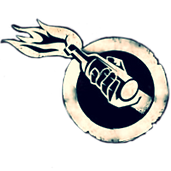Ponu Navarednam obituary
- rebornkw
- Jul 20, 2015
- 2 min read
When the charismatic Indian nationalist leader Subhas Chandra Bose toured Malaya in the early 1940s, recruiting members for the Indian National Army – its aim to secure Indian independence – my godmother, Ponu Navarednam, and her younger sister, Rasammah, joined up.
A women’s regiment was formed, called the Rani of Jhansi, and after intensive training in Singapore, the young women were sent to Burma. The schedule was tough. They had to get up early each morning and go for long marches, through paddy fields with what Ponu, who has died aged 89, recalled were “gigantic leeches”. Chandra Bose promised their families that he would look after the young girls as though they were his daughters.
After some months they had to retreat, losing several of their friends from heavy bombing by the British. By train, foot and lorry, they arrived in Bangkok, where Rasamm

ah fell ill. Ponu stayed with her in the French convent there until they were both flown back to Penang, Malaya, by British military plane. After a debriefing in the Eastern and Oriental hotel that she described as “very polite”, the British authorities let the young women return home.
Ponu was born in Ipoh, in what was then British Malaya, to a family of second-generation migrants from Ceylon (now Sri Lanka), with a strong sense of Indian national identity. When her teacher once asked all the Indian girls in the class to stand up, Ponu also stood, glaring fiercely at anyone who challenged her, saying, “Yes, I am Indian.” Her father died when she was 10, leaving her mother to raise six children on her own.
In the 50s and 60s Ponu played hockey for the Selangor state and the national women’s teams, travelling extensively on tour. Ponu met my parents as a worshipper at St John’s Church, Ipoh, where my father was an Anglican priest. They immediately took to this strong and strikingly beautiful woman, a spirited and outspoken individual, with her naughty humour and raucous laughter, who refused to be constrained by the traditional roles ascribed to women at the time.
Ponu married, settled in Ipoh, and had a daughter, Pia. But when the marriage ended, she took a job as a typist in Kuala Lumpur until she retired and then went to live with Pia and her family in the US.
She is survived by Pia, her grandchildren, Adrian and Pia, and by Rasammah.













Comments